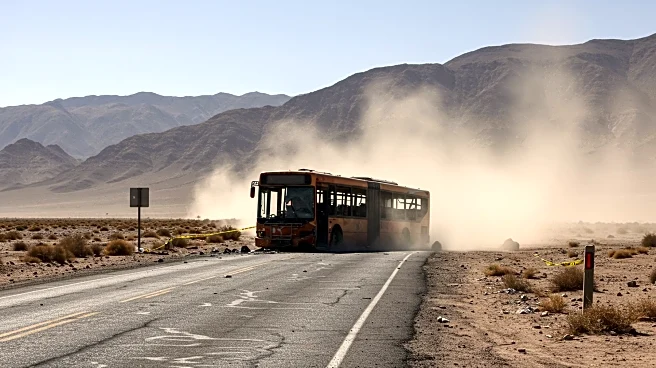What's Happening?
A tragic bus crash in Herat province, Afghanistan, has resulted in the deaths of 73 people, including 17 children. The victims were Afghan migrants deported from Iran, traveling on a bus that collided with a truck and motorcycle. The accident highlights the increasing deportations of undocumented Afghan migrants by Iran, which has intensified following a brief conflict with Israel. Iran has forcibly returned hundreds of thousands of Afghans, citing national security concerns. This has led to growing anti-Afghan sentiment and systemic discrimination against refugees in Iran.
Why It's Important?
The deportation of Afghan migrants from Iran poses significant challenges for Afghanistan, which is struggling to absorb the influx of returnees under Taliban rule. The country lacks the capacity to support the growing number of nationals being forcibly returned, exacerbating existing resource strains. The situation also reflects broader geopolitical tensions, as Iran's actions are partly driven by security concerns following its conflict with Israel. The humanitarian impact on Afghan refugees is severe, with many facing discrimination and unsafe conditions upon return.
What's Next?
Afghanistan will need to address the challenges posed by the return of deported migrants, including providing adequate resources and support. International organizations may need to step in to assist with humanitarian aid and resettlement efforts. The situation could lead to increased pressure on Iran to reconsider its deportation policies, especially given the potential for further destabilization in Afghanistan.
Beyond the Headlines
The deportations raise ethical and legal questions about the treatment of refugees and the responsibilities of host countries. The systemic discrimination faced by Afghans in Iran highlights broader issues of refugee rights and international obligations.









